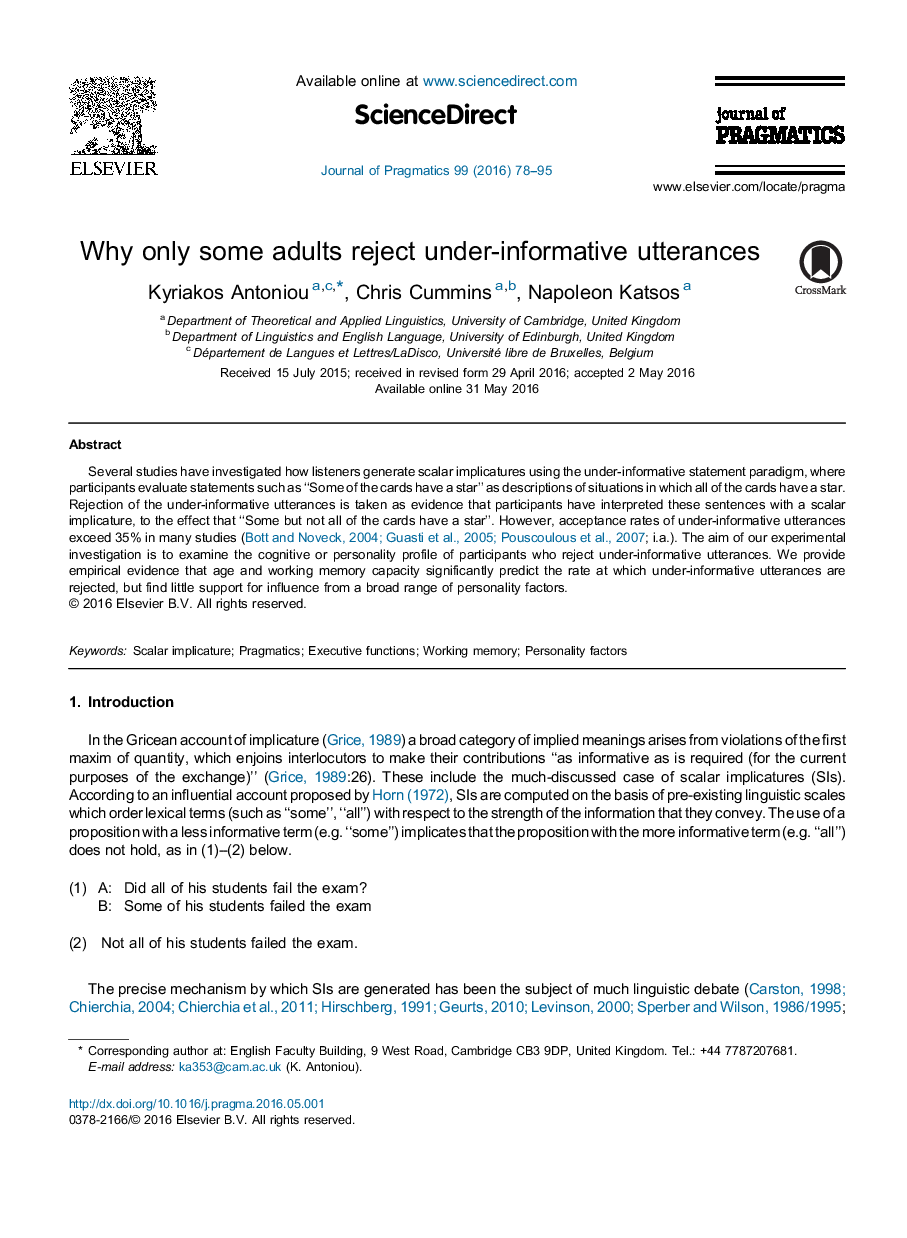| Article ID | Journal | Published Year | Pages | File Type |
|---|---|---|---|---|
| 932468 | Journal of Pragmatics | 2016 | 18 Pages |
•We report a study using a binary-judgment task with under-informative statements.•We examine the profile of subjects who reject under-informative utterances.•Working memory has a positive contribution to rejecting under-informative statements.•Age negatively affects the rate of rejection of under-informative sentences.•We find no evidence for influence from a broad range of personality factors.
Several studies have investigated how listeners generate scalar implicatures using the under-informative statement paradigm, where participants evaluate statements such as “Some of the cards have a star” as descriptions of situations in which all of the cards have a star. Rejection of the under-informative utterances is taken as evidence that participants have interpreted these sentences with a scalar implicature, to the effect that “Some but not all of the cards have a star”. However, acceptance rates of under-informative utterances exceed 35% in many studies (Bott and Noveck, 2004, Guasti et al., 2005 and Pouscoulous et al., 2007; i.a.). The aim of our experimental investigation is to examine the cognitive or personality profile of participants who reject under-informative utterances. We provide empirical evidence that age and working memory capacity significantly predict the rate at which under-informative utterances are rejected, but find little support for influence from a broad range of personality factors.
